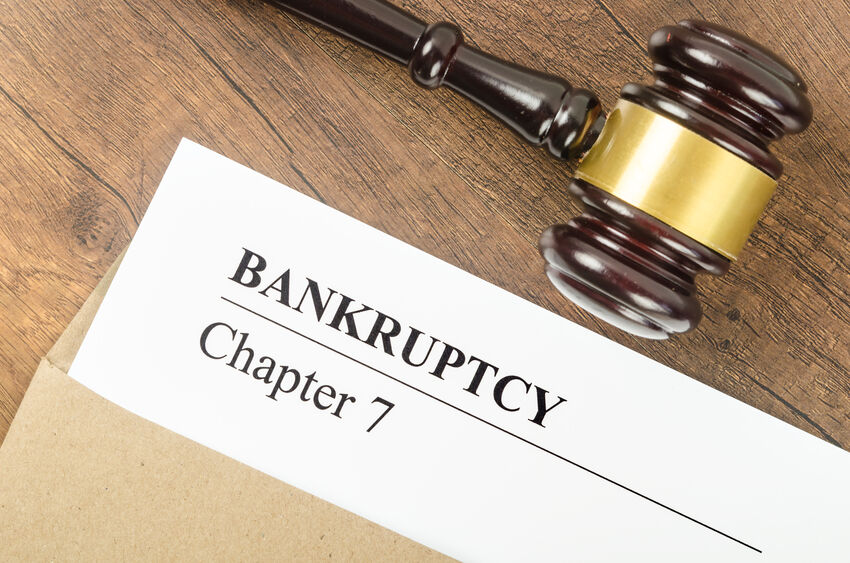A Chapter 7 bankruptcy allows you to eliminate, or discharge, all of your dischargeable unsecured debt without paying anything back to your creditors. Debts eliminated by a Chapter 7 bankruptcy include credit cards, personal loans, medical bills, and vehicle loan deficiencies. The only common bills not discharged are student loans, child support or alimony payments, and the prior three years of income taxes; if it is any other sort of debt, it will be eliminated by the bankruptcy.
To receive the relief offered by a Chapter 7 bankruptcy you must provide the Court with full and complete disclosure of your financial situation by filing a bankruptcy petition. Hiring me to help you through this process ensures your petition is prepared thoroughly and accurately. I will also make sure to protect the things that you value, and have worked so hard to obtain, by claiming all the protections, or exemptions, available to you under the bankruptcy code.
Chapter 7 bankruptcy provides a powerful tool and useful tool to help you repair your financial situation. Please contact me to discuss how Chapter 7 can help you.
The steps to getting your ‘Fresh Start’ with a Chapter 7 Bankruptcy
First, we start with a detailed conversation about your situation. This initial consultation is completely free. Depending on our schedules, I may be able to have this conversation with you the very first time you call me. During this consultation, I will ask a number of questions about the items you own, your income and expenses, and specific questions about your finances. These are the questions you would expect to discuss to participate in a process to eliminate all of your debt and save you thousands of dollars. During this conversation I will tell you my fees and discuss payment plans that I have available. My fees for a Chapter 7 start at $800. You can make payments of $50 a month to retain me to help you get relief from your debts.
I then send you a written retainer agreement, putting my fees in writing, information about a required credit counseling course, and a list of documents I need to prepare your bankruptcy petition.
Once the retainer is paid, I prepare your bankruptcy petition. The bankruptcy petition is a specialized legal document putting the information you have provided to me into the form required by the Bankruptcy Code.
The documents that I need to prepare your bankruptcy petition include:
- Your prior two years of income tax returns
- Current pay stubs
- Copies of the titles to vehicles you own
Once I prepare the petition, we will set up a time to review the petition so you can ensure the paperwork is accurate, and I can answer any questions or concerns you may have about it. I then complete a final review of the petition and file it with the Court.
Filing the bankruptcy petition with the Court immediately protects you from your creditors. The bankruptcy filing creates the Automatic Stay. The Automatic Stay is the provision in the Bankruptcy code that prevents your creditors from continuing to attempt to collect debts from you. This means that once your case is filed, wage garnishments have to end, foreclosure and other legal proceedings must stop, and collection calls become a violation of federal law.
After your case is filed, the Court schedules a hearing for your case called the Meeting of Creditors. Bankruptcy hearings are currently being conducted by a secure telephone call, so you will not need to travel to participate in the hearing. You will have at least 4 weeks of notice for your hearing, so that you can arrange your schedule to participate in the meeting.
Your hearing will be conducted by an individual known as a Trustee. The Trustee is an attorney assigned to your case by the Court. The Trustee’s primary job is to review the information contained in your bankruptcy to ensure that it is complete and accurate.
I participate in the call with you, and prior to the hearing, I send your Trustee all of the information necessary for your hearing to go smoothly and efficiently.
During your hearing, you will answer a series of questions similar to the ones that I asked you during our conversations about your situation. The Trustee’s questions normally take just 5 to 10 minutes to answer. The information we provide on your petition and the documentation I send to the Trustee ensure that meetings go smoothly and efficiently.
In most cases, you will only need to speak to the Trustee a single time. Occasionally, the Trustee will need additional information or documents after your hearing, and I work with you to ensure that this information is provided to the Trustee. It is very uncommon that another hearing occurs to review this information.
Approximately 60 days after your hearing, the Court will issue your Discharge. The Discharge is the Court Order permanently prohibiting your creditors from trying to collect the debts you owed when you filed your case.
After you receive your discharge, I will also send you information so that you can enroll in a program to rebuild your credit. The program is called 720 Credit. The program will help you take all the right steps to quickly reestablish your credit and take full advantage of your new financial situation.

